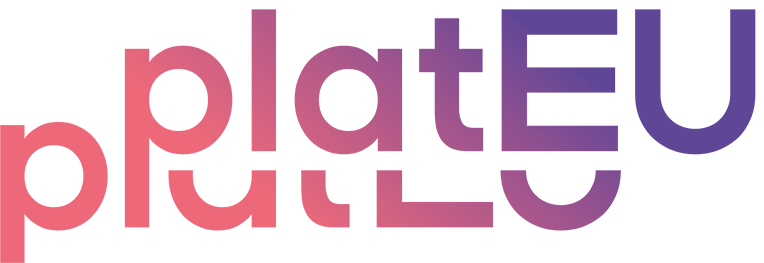platEU reflections
Research paper series ‘platEU REFLECTIONS’ will provide concise policy-oriented analysis and case studies addressing current issues in cultural and media policy research and practice, as well as critical analysis on the different issues reflecting the themes of the platEU project. It will explore the role that European Union policies have on the online platforms impacting cultural and audio-visual sectors in order to kindle interest in EU related topics among Croatian cultural researchers, policy makers and cultural practitioners.
The aim of the ‘platEU REFLECTIONS’ paper series is to pool the research of all the project stakeholders and make it more visible and accessible to all the interested parties. It will bring in-views not only from well-established scholars and practitioners, but also perspectives from young cultural policy scholars and cultural workers that will be published in either blog or article format.
platEU reflection no.6: Revision of Amazon purchase of MGM: The beginning of showdown with tech giants?
Authors: Paško Bilić, IRMO and Benjamin Birkinbine, University of Nevada
Harmful economic, political, social and cultural practices of platform business models continue to attract a lot of attention in academic and policy debates. While there is still no clear blueprint on how to regulate, major companies continue to grow their businesses to harness economies of scale and network effects. This commentary discusses the purchase of MGM by Amazon for $8.45 billion and the consequences it might have for regulating platforms in the US and the EU.
platEU reflection no.5: The regulation of digital monopolies and the production of public wealth
Author: Toni Prug, Department for Cultural Studies, Faculty of humanities and Social Sciences, University of Rijeka
In the fifth platEU reflection the author highlights how the countries around the world are trying to regulate digital platforms because of their distortion of competition, direct and indirect impact on the media industry, and little or no contribution to public finances in the countries where they generate revenue. The important social functions performed by the dominant digital platforms still remain outside the regulatory frameworks, subordinated exclusively to the logic of profit. The author shows how by changing the theoretical paradigm of wealth production, a space could open up for regulatory policies capable of modifying the character of digital platforms by bringing them closer to the logic of public wealth, the social configuration of production we are familiar with from domains such as public health and science.
platEU reflection no.4: Governance of culture and regulation of online platforms: cross-national issues
Author: Antonios Vlassis, Center for International Relations Studies (CEFIR), University of Liège
The fourth platEU reflection brings information on the current data and policy initiatives dealing with the state of play of cultural markets and worldwide activities of online platforms. It firstly highlights the key trends in the global music and audiovisual markets in the context of lockdown measures due to the COVID-19 pandemic. Secondly, it analyses various activities of online platforms in different institutional contexts, such as in Southeast Asia, in South Africa, and in Italy. Thirdly, it turns to several policy initiatives regarding the governance of online platforms. The focus is on India, the United Kingdom (UK) and the European Union.
platEU reflection no.3: Cultural markets and worldwide activities of online platforms: a state of play
Author: Antonios Vlassis, Center for International Relations Studies (CEFIR), University of Liège
The third platEU reflection brings information on the current data and policy initiatives dealing with the state of play of cultural markets and worldwide activities of online platforms. It firstly highlights the key trends in the global music and audiovisual markets in the context of lockdown measures due to the COVID-19 pandemic. Secondly, it analyses various activities of online platforms in different institutional contexts, such as in Southeast Asia, in South Africa, and in Italy. Thirdly, it turns to several policy initiatives regarding the governance of online platforms. The focus will be on India, the United Kingdom (UK) and the European Union.
platEU reflection no.2: EU Digital Services Act package in the context of large digital platforms
Author: Paško Bilić, IRMO
In this reflection, Paško Bilić analyses the new EU Digital Services Act package, which includes the Digital Services Act (COM 2020/825) and the Digital Markets Act (COM 2020/842). The proposed legal instruments are viewed in the context of large platforms and EU’s unsuccessful taxation directives. The author concludes that the new package does not sufficiently address the most important segment of the large platform business model: surveillance of user data and profit making in Member States without tax contribution to public finances.
platEU reflection no.1: Digital Services Act package and audiovisual sector: The complexity of interactions of new and old EU regulatory instruments
Author: Jaka Primorac, IRMO
The first platEU reflection brings a review of the online conference entitled ‘The new Digital Services Act Package: a paradigm shift?’ organized by the European Audiovisual Observatory (EAO) that was held online on the 11th of February 2021. The conference was organized in order to examine all the features of the new European legislative that are relevant to the sector, and so as to discuss what are the consequences of the new regulatory model for the providers of the Internet content such as emitters, video on demand services and social media platforms.


